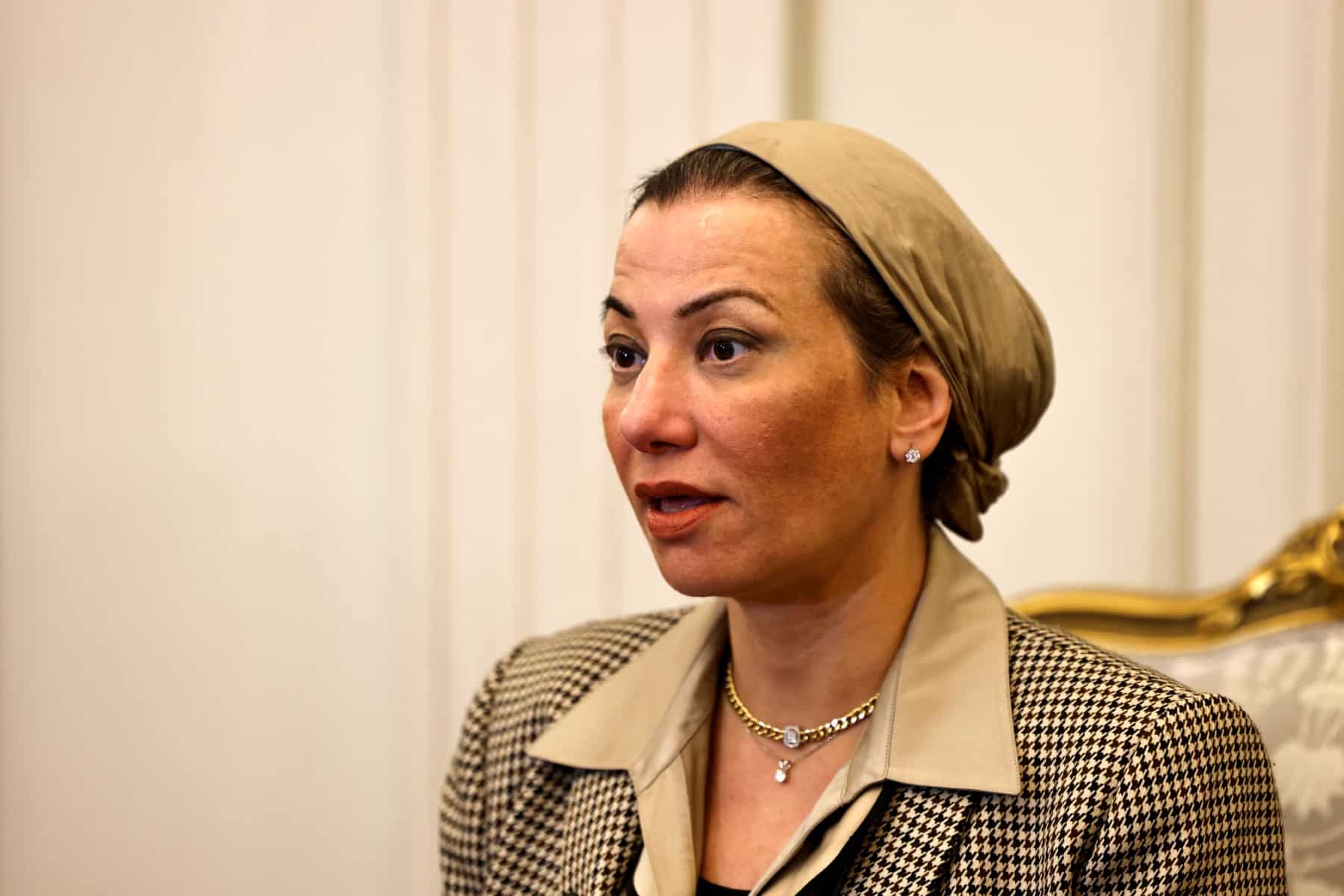When Egypt hosts a global climate summit in November, it will seek to represent Africa which shares little of the blame for global warming but suffers many of its worst impacts, its environment minister says.
Yasmine Fouad told AFP in an interview Wednesday that Egypt will also remind rich countries of the industrialised world of their unfulfilled aid pledges, at the COP27 summit in the Red Sea resort of Sharm el-Sheikh.
Part of Egypt’s role as host is to “represent the African continent and its needs clearly and explicitly: We were not the cause of these emissions, but it is us –- our people and our natural resources –- that are affected,” Fouad said.
She was speaking on the sidelines of an international conference in Cairo aimed at highlighting “Africa’s needs and ambitions” in fighting and adjusting to climate change.
African countries are among the most exposed to the impacts of climate change, especially worsening droughts and floods, but responsible for only around three percent of global CO2 emissions, former UN chief Ban Ki-moon said this week.
He was speaking at an Africa-focused summit in the Dutch city of Rotterdam, where African leaders lashed out at industrialised nations for failing to show up.
Targets in danger
Egypt’s environment minister said that “at this point, a stance must be taken on the international community level to say that everyone must fulfil their obligations, as set out in the Paris Agreement”.
In 2015, 196 UN members meeting in Paris set the goal of keeping warming below two degrees Celsius (3.6 degrees Fahrenheit) over pre-industrial levels, and preferably 1.5 Celsius, but surging carbon emissions have since endangered the targets.
The Paris Agreement also stipulated that developed countries “shall provide financial resources to assist developing country parties” in curbing their emissions and strengthening resilience.
Already in 2015, a promise made at the Copenhagen climate summit in 2009 — to spend $100 billion a year by 2020 on helping vulnerable nations adapt to climate change — was receding in the rear-view mirror.
The 2020 goal came and went with pledges unmet, and regional meetings in preparation for COP27, such as this week’s in Egypt and the Netherlands as well as another last week in Gabon, signal that funding could become a key flashpoint in Sharm el-Sheikh.
Water, food and energy
Fouad said environmental concerns had until recent years been regarded “as an obstacle to investment” and a “luxury” that Egypt could not afford.
Drumming up support for environmental efforts was an uphill battle, until the tide turned and the world became increasingly aware that climate change is a matter of “human survival on planet earth”, she said.
The key to securing financing for efforts to combat climate change, she said, was to zero in on “basic human needs on earth: food, water, energy”.
In focusing on “bankable” projects that can turn a profit, Fouad said Egypt hopes to “use new and renewable energy to provide food and water, such as through desalination”.
Such projects could support developing countries with their basic development needs and with addressing climate change, she said, arguing that the two goals are in fact “one and the same”.

